





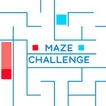


































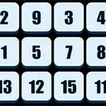





















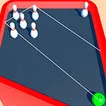































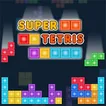









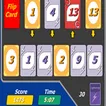


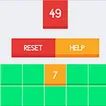








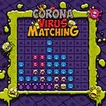

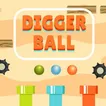


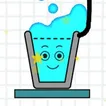










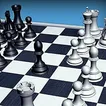
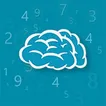






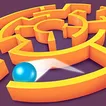




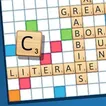
























Logic Games: Enhancing Cognitive Skills Through Play
In a world where digital distractions are ever-present, logic games stand as a beacon of intellectual engagement, offering a fun and effective way to sharpen the mind. These games are not mere pastimes; they are tools that enhance cognitive skills through the joy of play. By challenging players to solve problems, think critically, and employ deductive reasoning, logic games serve as a gymnasium for the brain, where mental muscles can be exercised and strengthened.
The appeal of logic games lies in their variety and accessibility. From classic chess and Sudoku to innovative puzzles that can be played online, there is a logic game to suit every preference and skill level. These games are designed to be progressively challenging, ensuring that as players grow in their abilities, they are met with puzzles that rise to meet their enhanced skills.
Engaging with logic games can be particularly beneficial, as they encourage players to approach problems from multiple angles, to think ahead, and to recognize patterns. This type of mental engagement is not only stimulating but also rewarding, as players experience the satisfaction of cracking a particularly tough puzzle. The joy of solving a logic game is not just in the victory, but in the journey of getting there—each step taken is a testament to the player’s growing cognitive abilities.
Moreover, the benefits of playing logic games extend beyond the immediate pleasure of the game itself. Regular engagement with these puzzles can lead to improved memory, faster problem-solving capabilities, and a more focused mind. In a world that demands quick thinking and adaptability, logic games offer a delightful and effective way to keep the brain in peak condition.
Logic Puzzles: Sharpening Minds Across Generations
Logic puzzles have long captivated the attention of people from all walks of life, offering a timeless form of entertainment that doubles as a mental exercise. These puzzles require players to use deductive reasoning and pattern recognition to arrive at solutions, providing a cerebral challenge that is both engaging and educational. The beauty of logic puzzles is their universal appeal; they are crafted to cater to different age groups, ensuring that everyone from children to seniors can find puzzles that are appropriate for their cognitive skill levels.
The cognitive workout provided by logic puzzles is akin to a cross-fit session for the brain, with each puzzle presenting a unique problem that must be solved through a combination of logic, strategy, and sometimes, a bit of creativity. This process of puzzle-solving not only entertains but also sharpens the mind, enhancing mental faculties in a way that is subtle yet profound.
For the young, logic puzzles are an excellent tool for developing critical thinking skills early in life. They teach the importance of patience, attention to detail, and the joy of intellectual discovery. For adults and seniors, these puzzles help maintain mental agility, potentially staving off the cognitive decline associated with aging. The act of engaging with a logic puzzle is a powerful way to keep the brain active and alert, promoting a healthy and vibrant mind.
In essence, logic puzzles are more than just a way to pass the time; they are a bridge connecting generations through the shared experience of problem-solving. They offer a mental workout that is both challenging and rewarding, proving that the pursuit of knowledge and the joy of solving a good puzzle are timeless endeavors that continue to sharpen minds across generations.
The Cognitive Benefits of Regular Logic Game Play
Regular engagement with logic games has been shown to offer a myriad of cognitive benefits that can enhance everyday life. By frequently challenging the brain with complex problems, individuals can improve their memory retention and recall, as these games often require remembering intricate details and sequences. This mental training can translate into a sharper memory in other areas of life, from recalling names and dates to mastering new skills.
Moreover, logic games can significantly speed up problem-solving abilities. As players become accustomed to identifying patterns and strategizing moves ahead of time, they develop quicker, more efficient ways to tackle challenges both in-game and in real-world scenarios. This agility of thought is particularly valuable in professional environments where time is of the essence and decisions must be made rapidly.
Another key benefit is the enhancement of focus and concentration. The immersive nature of logic games demands sustained attention and the ability to filter out distractions. Over time, this can lead to better focus in other tasks, as the brain becomes trained to concentrate on the job at hand and resist interruptions.
The cognitive benefits of logic games are not just anecdotal; numerous studies have supported the idea that engaging in such mental exercises can have a positive impact on brain function. By regularly playing logic games, individuals of all ages can foster a more agile and resilient mind, better equipped to face the complexities of modern life.
Classic Logic Problems and Modern Twists
Classic logic problems have long been a staple in the realm of intellectual challenges, engaging minds with riddles, brain teasers, and other conundrums that require a blend of wit and wisdom to unravel. These timeless puzzles have captivated thinkers for centuries, offering a simple yet profound way to test one’s reasoning and logical prowess. They stand as monuments to the enduring human fascination with problem-solving and the joy of discovery that comes with finding a solution.
In the modern era, these classic problems have evolved, taking on new forms and incorporating contemporary themes. Logic grid puzzles, for example, add layers of complexity and require solvers to deduce relationships between different elements based on a set of clues. Self-referential quizzes challenge players to think about the puzzles themselves in a meta-cognitive twist that turns traditional problem-solving on its head.
These modern twists on classic logic problems are more than mere entertainment; they are a testament to the adaptability and growth of cognitive challenges in response to a changing world. They encourage players to think outside the box and apply structured problem-solving skills in novel ways. The satisfaction derived from these puzzles is twofold: there is the immediate pleasure of cracking a tough challenge, and the deeper, more lasting reward of knowing that each puzzle solved contributes to the development of a sharper, more disciplined mind.
Whether one is engaging with a centuries-old riddle or a puzzle that’s been crafted for the digital age, the educational value remains constant. Classic logic problems and their modern counterparts continue to be a powerful tool for cognitive development, offering a delightful way to build a strong foundation of logical thinking that can benefit individuals in all aspects of life.